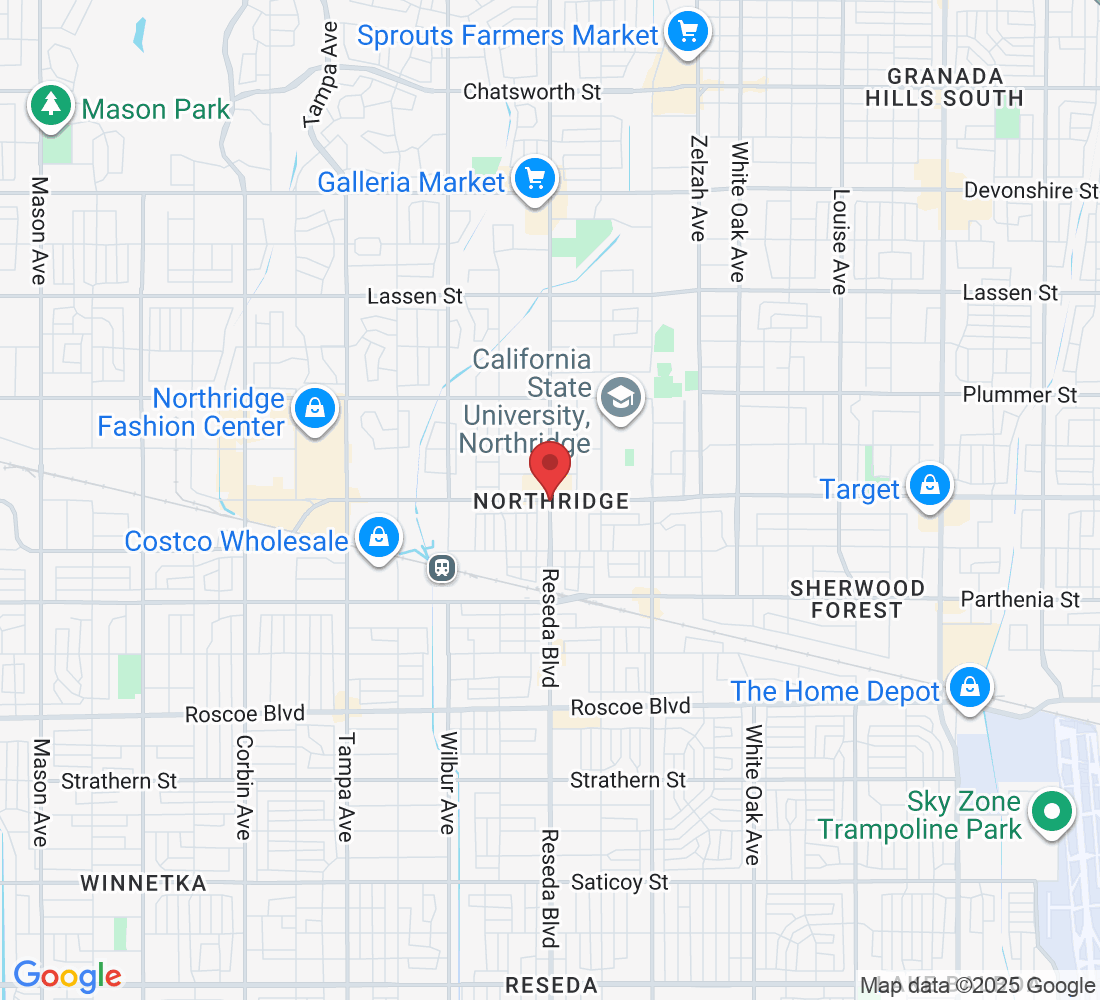Sponsored





Industrial Roofers in Northridge
Professional Roofing Solutions For Large-scale Projects
Searching for reliable industrial roofers in Northridge? Local experts specialize in installation, repair, and maintenance of durable roofing systems for warehouses, factories, and commercial buildings. With proven experience and quality materials, these professionals ensure long-lasting protection for your property. Browse top industrial roofers in Northridge and connect with a trusted local provider today!
Industrial Roofers in Northridge – Why Hire a Professional Industrial Roofers Service
Safeguarding Industrial Facilities with Expert Roofing Solutions
The Importance of Industrial Roofing in Northridge
Industrial facilities in Northridge play a critical role in supporting local businesses and the regional economy. From warehouses and factories to distribution centers and commercial complexes, these buildings require strong, durable roofs that can withstand heavy usage and challenging weather conditions. Unlike residential roofing, industrial roofing systems are far more complex and expansive. Hiring professional industrial roofers in Northridge ensures these structures remain functional, safe, and compliant with local building standards.
Industrial roofs must often support HVAC units, heavy ventilation systems, and other equipment. Because of these added demands, professional roofers are essential in maintaining, repairing, and installing roofs that meet the unique requirements of industrial buildings. A professional industrial roofing service not only extends the lifespan of the roof but also safeguards expensive equipment and the overall operation of a business.
Why Hire Professional Industrial Roofers
Industrial roofing projects require specialized expertise. Professionals have the knowledge to handle flat roofing systems, metal roofing, modified bitumen, and single-ply membranes such as TPO or EPDM. These materials require specific techniques for installation and repair, which only certified industrial roofers in Northridge can provide.
Safety is another crucial reason to hire professionals. Industrial roofing projects involve large surfaces and heavy equipment. Without proper safety protocols, workers face significant risks of injury. Licensed roofers are trained in safety standards and insured, which protects both the workers and business owners from liability.
In addition, professional industrial roofing contractors deliver efficiency. For businesses, time is money. Delays in roofing projects can disrupt operations and cause revenue loss. Experienced roofers work with precision and adhere to strict timelines, ensuring minimal downtime for industrial facilities.
Common Industrial Roofing Issues in Northridge
Industrial buildings in Northridge face several common roofing problems due to climate and usage. One of the most frequent issues is roof leaks caused by damaged membranes or aging materials. Professional industrial roofers can quickly identify leak sources and apply lasting solutions that protect inventory, machinery, and personnel inside the building.
Ponding water is another challenge. Flat roofs are particularly susceptible to water accumulation after heavy rains. Without proper drainage, this can lead to premature roof failure. Skilled industrial roofing services implement effective drainage systems to prevent costly damage.
Sun and heat exposure are also major concerns in Northridge, where summers are extremely hot. Prolonged UV exposure can degrade roofing materials, causing cracks and brittleness. Professional roofers recommend reflective coatings and energy-efficient roofing systems that extend roof life while reducing cooling costs.
Finally, improper installation or low-quality repairs can weaken the integrity of an industrial roof. Professional roofers ensure compliance with industry standards and use high-grade materials to provide long-term durability and protection.
The Advantages of Local Northridge Industrial Roofers
Choosing local industrial roofers in Northridge brings several advantages. Local contractors are familiar with regional weather conditions, building codes, and the specific needs of businesses in the San Fernando Valley.
They also provide faster response times during emergencies. If a storm or sudden damage occurs, a nearby industrial roofing team can respond quickly, preventing further disruptions to business operations.
Furthermore, local contractors depend heavily on reputation. To maintain strong community trust, Northridge industrial roofers often go above and beyond in quality service, ensuring businesses receive reliable and professional results.
Cost Considerations and Long-Term Value
Some business owners may hesitate to hire professional industrial roofing services due to perceived costs. However, attempting cheaper, unprofessional solutions often leads to higher expenses in the long run. Professional roofers use durable materials, follow proper installation methods, and offer warranties that protect investments for years to come.
Additionally, energy-efficient roofing solutions recommended by professionals can significantly reduce utility bills. Reflective coatings, insulated roofing systems, and modern materials help businesses save on cooling costs while creating a more comfortable environment inside the facility.
Ultimately, professional industrial roofing in Northridge should be viewed as a long-term investment. By ensuring the safety and functionality of your roof, you protect your building, staff, and operations, all of which are essential to the success of your business.
Conclusion: Why Industrial Roofers Are Essential in Northridge
Industrial roofing is far more complex than residential roofing and requires specialized expertise, materials, and techniques. For Northridge businesses, hiring professional industrial roofers ensures long-lasting protection, safety, and compliance with building regulations.
From leak repairs and drainage solutions to full installations and energy-efficient upgrades, professional roofing services provide comprehensive solutions tailored to industrial needs. By investing in professional roofers, Northridge businesses secure their future, avoid costly repairs, and ensure smooth operations for years to come.

Quality Roofing & Maintenance
Roofing contractor

Overview

New Residential Roof Repair

Commercial Roofing Repair

Storm Damage Roof Repair
Industrial Roofers Northridge
Expert roofing solutions for industrial and commercial buildings
Contact our industrial roofers in Northridge today for durable, professional service!
Hunters Roofing
Description: Licensed professional roofing company offering residential & commercial roofing, repairs, new roofs, and free estimates.
Address: 18328 Eddy St, Northridge, CA 91325, USA
Phone: (818) 996‑6120
Website: huntersroofing.com
Hours: Mon–Fri: 7 AM – 4 PM; Sat–Sun: Closed
Elite Roofing Company Los Angeles
Description: Full-service roofing contractor offering roof inspections, installations, and maintenance throughout the Los Angeles area.
Address: 19441 Business Center Dr, UNIT 112, Northridge, CA 91324, USA
Phone: (877) 834-1885
Website: myeliteroofing.com
Rating: 4.0 (Google)
Royal Roofing
Description: Specialists in affordable roofing (repair, restoration, re-roofing), offering free estimates and serving Northridge since 1980.
Address: Northridge, CA (multiple ZIP codes)
Phone: Contact via website
Website: royalroofing.com
DNA Roofing Inc.
Description: Roofing contractor offering roof repair, inspection, installation, and replacement in Northridge and surrounding areas.
Address: Northridge, CA (Service Area)
Phone: (877) 942‑5252
Website: dnaroofinginc.com
People Also Ask
Industrial buildings typically require roofing systems that can cover large surface areas while withstanding heavy use and environmental stress. Common options include metal roofing, known for its durability and low maintenance, and single-ply membranes such as TPO, EPDM, and PVC, which provide flexibility and energy efficiency. Modified bitumen and built-up roofing (BUR) systems are also used for their strength and multi-layer protection. The choice of system depends on factors like the building’s design, climate conditions, and long-term maintenance requirements. Selecting the right system ensures maximum protection for the structure and its operations.
Industrial roofs should generally be inspected at least twice a year—once in the spring and once in the fall—to identify potential issues before they worsen. These inspections should be supplemented after severe weather events, such as storms, hail, or high winds, which can cause hidden damage. During an inspection, professionals check for membrane punctures, loose flashing, clogged drains, and early signs of water intrusion. Regular inspections are especially important for industrial roofs, given their size and complexity. Proactive maintenance not only helps extend the lifespan of the roof but also prevents costly downtime for the business.
Industrial roofing projects present unique challenges due to their scale, design, and performance demands. Large roof surfaces increase exposure to weather-related wear, while flat or low-slope designs often require advanced drainage systems to prevent pooling water. Access to certain roof areas may also be limited, complicating installation or repair work. Safety is a major consideration, as crews must adhere to strict protocols when working at heights or around mechanical equipment. Additionally, projects must often be completed without interrupting the building’s daily operations, requiring careful planning and coordination. Addressing these challenges ensures the roof remains both functional and long-lasting.
Modern industrial roofing systems are designed not only for durability but also for energy efficiency. Reflective or “cool roof” materials help reduce heat absorption, lowering energy costs for cooling large facilities. Insulation layers within the roofing system improve thermal regulation, maintaining a more stable indoor temperature. Single-ply membranes like TPO and PVC are particularly effective for their reflective properties. Green roofing options, such as vegetative systems, can also provide insulation benefits while improving stormwater management. Choosing the right energy-efficient roofing solution reduces operational expenses while supporting sustainability goals for industrial facilities.
Regular maintenance is key to maximizing the service life of an industrial roof. Keeping drains and gutters clear of debris prevents water accumulation that can weaken roofing materials. Inspecting and resealing flashing around HVAC units, skylights, and vents reduces the risk of leaks. Addressing small punctures, cracks, or seam separations promptly helps prevent larger, more costly issues. Periodic cleaning of the roof surface can also reduce damage caused by dirt, algae, or chemical exposure. Establishing a preventive maintenance program ensures the roof continues to perform well, saving money and reducing unplanned disruptions to the facility’s operations.
The lifespan of an industrial roofing system depends on the materials used, installation quality, and ongoing maintenance. Metal roofs can last 40–60 years with proper care, while single-ply membranes typically last 20–30 years. Modified bitumen and built-up roofing systems also offer lifespans in the 20–30 year range. Regular inspections and proactive repairs can significantly extend these timelines. Harsh weather, chemical exposure, or lack of maintenance can shorten the roof’s service life. Understanding expected lifespans helps facility managers plan for budgeting, maintenance, and eventual replacement, ensuring the building remains protected long-term.
Don’t Wait for Leaks: The Importance of Routine Roof Inspections for Northridge Homes
A roof is one of the most critical parts of any home, providing protection from the elements and ensuring the safety and comfort of its inhabitants. Despite its importance, the roof is often overlooked until a problem arises. Regular roof inspections are essential for maintaining the roof’s integrity and preventing costly repairs. This article will explore why regular roof inspections are crucial and how they can save homeowners money and extend the life of their roofs.
Understanding Roof Inspections
A roof inspection is a comprehensive assessment of a roof's condition, performed by a professional roofing contractor. During the inspection, the contractor checks for signs of wear and tear, damage, and other issues that could affect the roof's performance. This includes looking for missing or damaged shingles, leaks, cracks, and other potential problem areas.
Benefits of Regular Roof Inspections
Early Problem Detection
One of the primary benefits of regular roof inspections is the early detection of problems. By identifying and addressing issues before they become major problems, homeowners can save money on costly repairs down the line. Early detection can also help prevent more extensive damage that could compromise the roof's structural integrity.
Extended Roof Lifespan
Regular roof inspections can significantly extend the lifespan of a roof. By identifying and fixing minor issues early, homeowners can prevent them from developing into more significant problems that could shorten the roof's lifespan. Proper maintenance ensures that the roof remains in good condition for as long as possible.
Improved Energy Efficiency
A properly maintained roof can also help improve the energy efficiency of a home. When a roof is damaged or not functioning correctly, it can allow air to escape, making it more difficult to keep the home warm in the winter and cool in the summer. Ensuring that the roof is in good condition can help homeowners save money on energy bills.
Increased Safety
A damaged or compromised roof can pose a safety hazard to homeowners and their families. Regular inspections can help identify potential safety hazards, such as loose or damaged shingles, and ensure that they are addressed promptly. This helps to maintain a safe living environment for everyone in the home.
Protecting Roofing Warranty
Many roofing materials come with a warranty that covers certain types of damage. However, these warranties often require regular maintenance and inspections to remain valid. By scheduling regular roof inspections, homeowners can ensure that their warranty remains in effect and that they can take advantage of any coverage if needed.
Preventing Water Damage
Water damage is one of the most common and costly issues that can affect a roof. Regular inspections can help identify potential sources of leaks, such as damaged shingles or flashing, and address them before they lead to significant water damage. This can prevent costly repairs and protect the home's interior from water-related issues like mold and rot.
Proper Drainage
Proper drainage is crucial for maintaining a roof's performance. A water-logged roof increases the chances of leaks and moisture penetration. Regular roof cleaning can help remove objects like leaves, trash, and debris from clogging roof drains, ensuring proper drainage and preventing water damage.
How Often Should You Inspect Your Roof?
The frequency of roof inspections depends on several factors, including the age and condition of the roof, its location, and the type of materials used. Generally, it is recommended that homeowners have their roofs inspected at least once a year. However, if the roof is older or located in an area with harsh weather conditions, more frequent inspections may be necessary. It is also important to have the roof inspected after significant weather events, such as heavy rain, hail, or wind storms, as these can cause damage that may not be immediately visible.
What Happens During a Roof Inspection?
During a roof inspection, the roofing contractor typically starts by performing a visual inspection of the roof from the ground, looking for signs of wear and tear, damage, or other issues. They then climb onto the roof for a more thorough inspection, checking for any issues that may not be visible from the ground. The contractor also looks for signs of water damage, such as water stains or mold, which can indicate leaks or other issues with the roof's performance. They may also check the attic for signs of moisture or damage, which can also indicate issues with the roof.
Conclusion
Regular roof inspections are an essential part of home maintenance, helping to ensure that the roof is in good condition and performing as it should. By identifying and addressing issues early, homeowners can save money on costly repairs down the line and extend the lifespan of their roof. Regular inspections also improve energy efficiency, increase safety, protect roofing warranties, prevent water damage, and ensure proper drainage. Homeowners should make roof inspections a priority to maintain the integrity of their roofs and protect their homes from potential damage.

